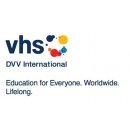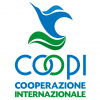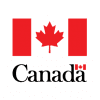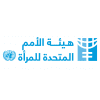External Evaluator
Terms of Reference
Evaluation of Capacity Development of Institutions of Adult Learning and Education in Palestine
Title: Evaluation of the BMZ country programme of Palestine
Country: Palestine
Project number: 2021 2626 4/DVV0004
Date of publication: 15.08.2022
Introduction
DVV International is the Institute for International Cooperation of the German Adult Education Association. The Association is the umbrella organization of approximately 900 Adult Education Centers in Germany. As a leading professional organisation in the field of adult education and development cooperation, DVV International has committed itself to supporting lifelong learning for 50 years. DVV International provides worldwide support for the establishment and development of sustainable structures for Youth and Adult Education. The programme of DVV International is financed by Germany’s Federal Ministry for Economic Cooperation and Development (BMZ).
DVV International started cooperation with partners in the Middle East in 2009. The Country Office in Palestine (Ramallah) was established in 2012, followed by the office in Gaza Strip in 2013. Facing widespread unemployment especially among people under the age of 25 all over the region, DVV International – together with its partners – strives to empower youth and adults to unfold their potential and engage in economic, political and social life in their community.
This call for qualified external evaluation candidates is published within the regular plans of DVV International to conduct a midterm evaluation of the meso level of its programme under the funding period 2021 to 2023.
- Background of the project
For several years of strategic partnership between DVV International, Dar al-Kalima University (formerly, DAK University College of Arts and Culture) and the Palestinian Ministry of Education, several initiatives were developed to support advancement of adult learning and education in Palestine. These efforts were stemming from the common vision to realise the principle of lifelong learning as a human right for all, and as a foundation for personal, social and economic welfare. Thus, the partners view ALE as key approach and instrument to alleviate poverty, reduce unemployment rates and achieve sustainable development.
Several achievements were accomplished within the course of this partnership and in cooperation with several governmental and non-governmental institutions, education experts and professionals and financial support of BMZ and EU. (For example, the very first national strategy on ALE in Palestine was developed by a national committee representing more than 30 governmental and non-governmental members. In addition, multiple programmes in training of trainers and training of ALE professionals were piloted adopting global participatory and empowering methodologies. Tens of projects and initiatives were also implemented within more than 25 local partnerships to present and examine innovative and quality ALE programmes.)
These efforts culminated in actual cooperation with local governance bodies, civil society and community-based organisations to establish the community centres for youth and adult education. These new institutions of adult learning and education (IALEs) were developed within two modes of partnerships:
Partnerships with civil society organisations: during the period of 2015 – 2018 civil society organisations were invited to participate in a project to develop and support their ALE programmes that have been implemented organically within their existing mandates and missions in sustainable and community development in various sectors in Jerusalem, West Bank and Gaza Strip.
Public/ community partnerships between the Ministry of Education and Palestinian Municipalities: within its non-formal education department, the ministry provides literacy education pathways that give adults various chances to go back to the formal academic education. In this context, and with main support from DVV International, three community partnerships were launched in 2018 between the ministry of education and the Municipalities of Arraba, Yamoun and Karmel in north and south West Bank, through which the literacy education centres in the three towns were transformed into community centres for youth and adult education.
DVV International supports establishment and development of the centres aiming at increasing citizens’ ability to access their right to lifelong learning through non-formal community-based ALE programmes. Therefore, DVV International provides ongoing technical and professional support to the managements and teams of the centres in phases of planning, need assessment, implementation, monitoring and learning for development. DVV International also ensures enabling the centres in popular education and participatory education methodologies, community empowerment and development and equal opportunities in their learning, social and cultural activities.
DVV International uses Curriculum InstitutionALE, an orientation framework for strengthening Institutions of Adult Learning and Education (IALEs), in its support of capacity development of the partners. It provides basic guidelines for managing capacity and organisational development, and suggests indicators and means of verification for organisational change and capacity development. Curriculum InstitutionALE is one of several tools and instruments which DVV International has developed in adult learning and education.
Objective of the programme
The overall objective for the programme of DVV International in Palestine is:
The national strategy and action plan are being implemented and contribute to local development and innovation in Palestine.
Focus of this evaluation is the meso level intervention with the following outcome: ALE providers improved their capacity to deliver ALE services based on the needs of 10 targeted communities.
Activities of the programme
On the meso level:
DVV International supports the organizational development of its partner organizations, the institutional development of the education centres, the qualification and professional competencies of the teaching staff, and the planning capacities of education managers.
Purpose of the evaluation
The purpose of the evaluation is to assess the achievement of envisaged outcomes and the fulfilment of the respective indicators. The evaluation shall be descriptive and analytical in terms of analysing the background of achievements or non-achievements and provide future oriented recommendations and strategic advices for future interventions of DVV International in the country.
The evaluation should take all possible sources (secondary and primary sources) of information into account and triangulate the different information sources to achieve high quality and valid data. This data shall enable the evaluator to provide evidence-based conclusions and feasible and realistic recommendations. The evaluation shall explain if and to what extent DVV International’s objectives on the meso level have been achieved and if the applied measures are effective and appropriate to reach the envisaged goals.
Guiding questions of the evaluation
Specific questions
To what extent it is possible to replicate the piloted approach of establishing IALEs in cooperation with municipalities in other communities?
To what extent has the concept of ALE become part of institutional identity of partner organisations?
In how far has the integration of ALE changed the beneficiaries’ life?
Relevance
The extent to which the aid activity is suited to the priorities and policies of the target group, recipient and donor.
Have the capacity development programme by DVV International been relevant to the organisational development needs of the partner IALEs? How were those needs identified? Was the programme successful in responding to them?
To what extent do the stakeholders agree with the relevance of the newly created/ supported IALEs to their communities’ needs and future needs?
Effectiveness
A measure of the extent to which an aid activity attains its objectives.
To what extent were the objectives of the capacity building programme of DVV International achieved / are likely to be achieved?
To what extent were the objectives of the supported IALEs achieved/ are likely to be achieved?
What were the major factors influencing the achievement or non-achievement of the objectives for both?
How effective were the approaches/ methods/ tools (for example in: need assessment/ training/ organisational capacity development/ networking), used by DVV International in its capacity building programme?
To which extent have the approaches/ methods/ tools of networking among the partner IALEs supported the development of their programmes and achievement of their goals?
To which extent have the used digital tools supported achievement of the goals of the partner IALEs?
Efficiency
Efficiency measures the outputs -- qualitative and quantitative -- in relation to the inputs. It is an economic term which signifies that the aid uses the least costly resources possible in order to achieve the desired results. This generally requires comparing alternative approaches to achieving the same outputs, to see whether the most efficient process has been adopted.
Were activities of the capacity building programme of DVV International cost-efficient?
To which extent and how did the capacity building programme support the partners in achieving efficiency in provision of community-based ALE? What changes happened in terms of using of existing resources?
Impact
The positive and negative changes produced by a development intervention, directly or indirectly, intended or unintended. This involves the main impacts and effects resulting from the activity on the local social, economic, environmental and other development indicators. The examination should be concerned with both intended and unintended results and must also include the positive and negative impact of external factors, such as changes in terms of trade and financial conditions.
How did the capacity development programme influence changes in the partners’ understanding and adoption of ALE concepts? How were these changes, if any, mirrored in strategic documents, structures, budgets, methodologies and approaches of the partners? How did these changes influence results of work of the partners in their communities?
How have the partner IALEs measured/ reviewed/ documented the impact of their work?
What have been the challenges for the partner IALEs in the process of learning about their impact? How effective they were in addressing these challenges? How these challenges can be remedied in the future?
Sustainability
Sustainability is concerned with measuring whether the benefits of an activity are likely to continue after donor funding has been withdrawn. Projects need to be environmentally as well as financially sustainable.
Will the results/ impacts of the partnerships continue when the funds of DVV International cease?
How realistic is a full integration of the new IALEs within the existing social structures (municipalities/ NGOs) without reliance on external funding?
What are the modalities (governance and finances) within which such development would be viable?
Which support is needed from DVV International to achieve the goal of sustainable existence of the partner IALEs?
Target group of the evaluation results
The target group of the evaluation will be the project management team of DVV International country and regional office as well as the head office in Bonn. The results of the evaluation will also be sent to the funding institution in Germany (BMZ). Furthermore, the results of the evaluation will also be presented to the partner institutions and taken as a key source to critically reflect the activities and measures of this project.
Expected Input / Financial Proposal:
The indicative number of working days foreseen is 11-13 working days, with a budget of up to 230 Euros per day. The following allocation of days is only an example and may be changed according to the requirements of the proposed methodology.
1 days total of briefing and debriefing;
3-4 days of document review and preparation of methodology;
1 day of mission preparation;
3-4 days of field mission;
2 days of report drafting;
1 day of report finalization.
Please take the indicative distribution of working days into account in your suggestions regarding the evaluation methodology.
Methodological approach
A combination of primary data collection and secondary data review is expected during the evaluation. Secondary data sources will be made available to the contractor. The following secondary documents will be provided:
Programme proposals
Annual programme reports
Final programme reports
Mid-term and other kinds of (self)evaluations referring to the programme
Partner documents of project implementation (as far as available)
To collect information from primary data sources, interviews with key stakeholders would be recommended:
Management (including financial management) of regional and country office of DVV International;
Senior management in the head office
Institutional capacity of partners:
Stakeholders from partner institutions (in different regions)
Trainers and teachers
Effectiveness with regard to the target group:
Representatives of final beneficiaries.
It should be checked if standardized quantitative approaches might be applicable.
Indicative Timetable
The indicative timetable for the evaluation is foreseen as follows:
Selection and contracting of evaluators: 30.09.2022
Briefing: 04.10.2022
Submission deadline for inception report: 10.10.2022
Integration of comments by DVV International and agreement on detailed methodology and itinerary for the field visit (if planned): 13.10.2022
Field visit, up to 5 days: 20.10.2022 – 05.11.2022
Debriefing with country office at the end of the field visit.
Draft final report: 15.11.2022
Final report: 30.11.2022
Right of use
The Principal has the exclusive and unlimited right to use the results fulfilled by the contract. The transfer of this Right of Use is complete with the payment made to the Contractor.
The Contractor has Right of Use permission strictly limited for personal non-commercial purposes. Transfer of the Right of Use to third parties is excluded.
Contractual Conditions
The legal basis for this contract is provided by the „General terms and conditions for the implementation of Services" (VOL/B). These general terms and conditions are not attached to this contract; however, an exemplary service contract is part of these Terms of Reference for perusal.
Tasks of the evaluator/ evaluation team
The evaluation team will be requested to fulfil the following tasks:
Methodological design and planning of the evaluation in communication with DVV International;
Desk Study of relevant project documentation (application and log-frame, annual plans and reports, other monitoring documents and project reports, teaching and PR material);
Design of data collection instruments for the field phase;
Prepare an Inception Report;
Conduct the field phase with participation and involvement of all relevant stakeholders;
Compile preliminary evaluation report, integrate comments, and finalize the report.
De-briefing sessions, possibly in country of evaluation and/or Bonn, Germany.
Deliverables
The following deliverables are expected:
Inception report: The expert/ team of experts will present a report giving detailed information about methods and specified questions. This report will be presented to DVV International, discussed and, if need be, amended.
Debriefing in the country: By arrangement with the DVV International programme coordinator, the (team of) expert(s) will present the preliminary, country-specific results of the evaluation and will answer questions in this regard, documenting the discussion, which must form part of the final report.
Draft evaluation report: DVV International will receive a first draft of the final report, which will be examined on the basis of the DAC Evaluation Quality Standards; on this basis, comments will be made on the rough draft before it is returned to the expert(s).
Final evaluation report: The final report will take into account the comments on the rough draft about the entire evaluation process and all results and recommendations.
The evaluation report should be produced in English and submitted to DVV International electronically. A respective template for the final report will be provided in the inception phase to the contractor.
Responsible persons at DVV International and logistics
DVV International will be the contracting authority for this evaluation. The main contact persons will be
The senior manager for monitoring and evaluation;
The senior desk officer for Middle East at DVV International in Bonn;
The regional director of DVV International in the Middle East.
The DVV country office will provide all relevant documents and support the evaluator/ team of evaluators in the field with arranging interviews and field visits etc.
The final report will be accepted by the senior manager for monitoring and evaluation and the senior desk officer for Middle East of DVV International in Bonn.
Qualification of evaluator/ evaluation team
The consultant(s) we are looking for should:
have at least 5-year experience in the field of evaluation of development projects (please, provide proof of this experience);
be able to demonstrate sound knowledge of evaluation methods and instruments;
be (an) experienced professional(s) in the field of adult education,
have experiences with stakeholder participation and transparent knowledge management;
analytical and writing skills;
previous working experience in the Palestine is a must;
fluency in English and Arabic are a must;
Ability to work within territories of East Jerusalem, West Bank and Gaza Strip is a must.
Quality standards
The candidates should propose a suitable evaluation design and methodology, well adapted to the project objectives and TOR for the evaluation, in order to meet the evaluation’s goal and objectives.
The evaluation must comply with the following standards and guidelines:
DeGEval-Standards https://www.degeval.org/degeval-standards/standards-fuer-evaluation/
OECD-DAC Principles for Evaluation of Development Assistance.
Application
All candidates who would like to participate in the tender for conducting the outlined evaluation should submit the following documents:
CV(s) of person(s) involved in assignment (please use attached template)
Technical proposal covering the following aspects (maximum of 6 pages):
Show understanding of the task
Methodological approach
Work Plan / steps of implementation
Consideration of specific requirements of the context of the evaluation
Internal Quality Management
Financial proposal (please use attached template).
The offers must be sent until 15.09.2022, to the following e-mail addresses:
Dr. Thomas Lichtenberg (Senior Manager on Monitoring and Evaluation at DVV International Headquarters in Bonn) e-mail address: [email protected];
Tomi Roesser (Senior Desk Officer for Middle East at DVV International Headquarters in Bonn) e-mail address: [email protected];
Nazaret Nazaretyan, Regional Director for Middle East: e-mail address: [email protected].
Late submissions will not be accepted.
Evaluation criteria of proposals
The proposals will be assessed according to the following criteria:
Qualification of evaluation team (counts one third) (based on criteria mentioned above);
Technical proposal (counts one third) (based on criteria mentioned above);
Financial proposal (counts one third) (best price-service relation).
Request for clarification
If you should have questions concerning this tender, please send your questions to the above mentioned contact persons. The latest date for submitting questions is 05.09.2022. The answers to the questions will be published on our website (https://www.dvv-international.de/dvv-international/stellenangebote/) for all interested parties the following day.





















